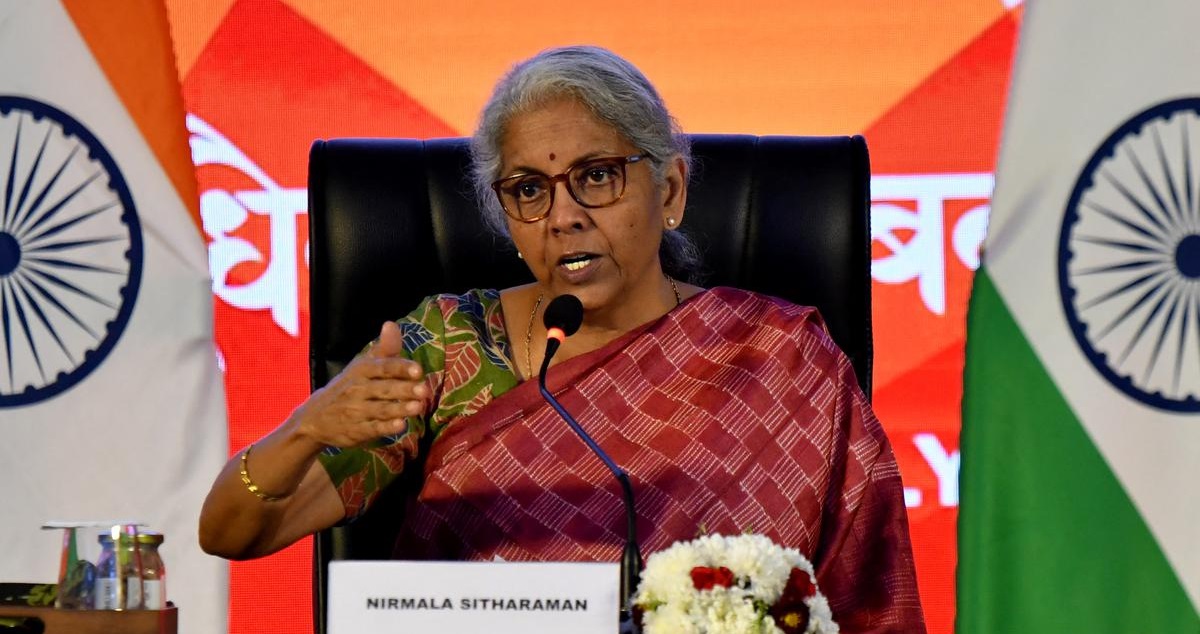
Bengaluru: Pointing to the fact that cryptocurrency as a technology is borderless in nature, Union Finance Minister Nirmala Sitharaman reiterated that all countries need to be on board for any regulation mechanism, or else it would not be effective. She was responding to a question on cryptocurrency during an interactive session on Sunday in Karnataka.
Crypto assets are currently unregulated in India. The Indian government does not register crypto exchanges and it maintains crypto assets, by definition, is borderless and requires ‘international collaboration’. ‘No one country individually, in a matter of technology-driven, a crypto asset, can effectively control it, because technology doesn’t have any borders, it can just pass through. So the very character of it being technology driven requires all countries to be on board, or else it will not be effective,’ Sitharaman said. ‘The underlying principle is because the digital currencies are completely digitalised and technology-driven, the technology, which is very distributed, and sometimes identity is very difficult to be established, but which has potential, it will therefore have to be acted upon only with all countries coming on board’.
A broad discussion on cryptocurrency is currently under consideration in G20 forum, whose presidency is currently with India. The IMF has given a paper on cryptocurrency and the way it can affect macroeconomic stability. The Financial Stability Board (FSB), which was set up by G-20, has also agreed to give a report that will also focus on financial stability. Their (FSB) report and IMF report are going to be discussed when G20 Finance Ministers and Central Bank Governors meet in July. Now, all eyes will be on India’s G20 Presidency for any positive headway in cryptocurrency regulation.
After the First G20 Finance Ministers and Central Bank Governors meeting in February, Sitharaman had said the central government was progressing towards the regulation of cryptocurrency under India’s G20 presidency. ‘Recognizing the risks attached to the private virtual assets, G20 nations moved a step closer to developing a coordinated and comprehensive policy approach to deal with the crypto assets by considering macroeconomic and regulatory perspectives’, she had said then.
India on many occasions maintained that any legislation for regulation or for banning cryptocurrencies can be effective only after significant international collaboration on the evaluation of the risks and benefits. ‘Cryptocurrencies are by definition borderless and require international collaboration to prevent regulatory arbitrage’, Sitharaman informed Lok Sabha earlier. Notably, cryptocurrencies have witnessed sharp volatility in 2022 with several service providers have closed their operations. Investors’ money worth billions in value got wiped out in the process. Of them was the FTX meltdown. FTX was a high-profile crypto exchange and collapsed in November due to reported misappropriation of customer funds. The recent collapse of the crypto exchange FTX and the ensuing sell-off in the crypto markets have placed a spotlight on the vulnerabilities in the crypto ecosystem, the Economic Survey document for 2022-23 tabled in Parliament by the central government said.
In early 2023, US regulators warned that risks such as fraud and scams, legal uncertainties, inaccurate or misleading representations and disclosures, and volatility is associated with crypto-assets and the participants and banking organizations should be aware of them. Indian central bank RBI is also not very keen on allowing crypto trade. RBI Governor Shaktikanta Das had even said cryptocurrencies are a clear danger and anything that derives value based on make-believe, without any underlying, is just speculation under a sophisticated name. He termed it to be a threat to the country’s macroeconomic and financial stability. According to Das, cryptocurrencies should be ‘prohibited’ and if they are allowed to grow ‘next financial crisis’ will come from private cryptocurrencies. Its origin, underlying value, and lack of clarity were his major concerns.

Post Your Comments